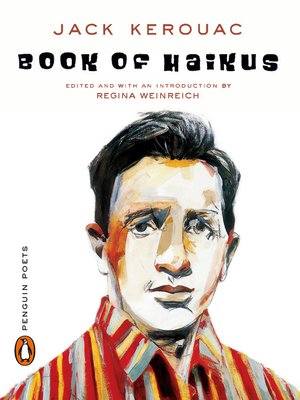
Sign up to save your library
With an OverDrive account, you can save your favorite libraries for at-a-glance information about availability. Find out more about OverDrive accounts.
Find this title in Libby, the library reading app by OverDrive.



Search for a digital library with this title
Title found at these libraries:
| Library Name | Distance |
|---|---|
| Loading... |
A compact collection of more than 500 poems from Jack Kerouac that reveal a lesser known but important side of his literary legacy
“Above all, a haiku must be very simple and free of all poetic trickery and make a little picture and yet be as airy and graceful as a Vivaldi pastorella.”—Jack Kerouac
Renowned for his groundbreaking Beat Generation novel On the Road, Jack Kerouac was also a master of the haiku, the three-line, seventeen-syllable Japanese poetic form. Following the tradition of Basho, Buson, Shiki, Issa, and other poets, Kerouac experimented with this centuries-old genre, taking it beyond strict syllable counts into what he believed was the form’s essence. He incorporated his “American” haiku in novels and in his correspondence, notebooks, journals, sketchbooks, and recordings.
In Book of Haikus, Kerouac scholar Regina Weinreich has supplemented a core haiku manuscript from Kerouac’s archives with a generous selection of the rest of his haiku, from both published and unpublished sources.
“Above all, a haiku must be very simple and free of all poetic trickery and make a little picture and yet be as airy and graceful as a Vivaldi pastorella.”—Jack Kerouac
Renowned for his groundbreaking Beat Generation novel On the Road, Jack Kerouac was also a master of the haiku, the three-line, seventeen-syllable Japanese poetic form. Following the tradition of Basho, Buson, Shiki, Issa, and other poets, Kerouac experimented with this centuries-old genre, taking it beyond strict syllable counts into what he believed was the form’s essence. He incorporated his “American” haiku in novels and in his correspondence, notebooks, journals, sketchbooks, and recordings.
In Book of Haikus, Kerouac scholar Regina Weinreich has supplemented a core haiku manuscript from Kerouac’s archives with a generous selection of the rest of his haiku, from both published and unpublished sources.







